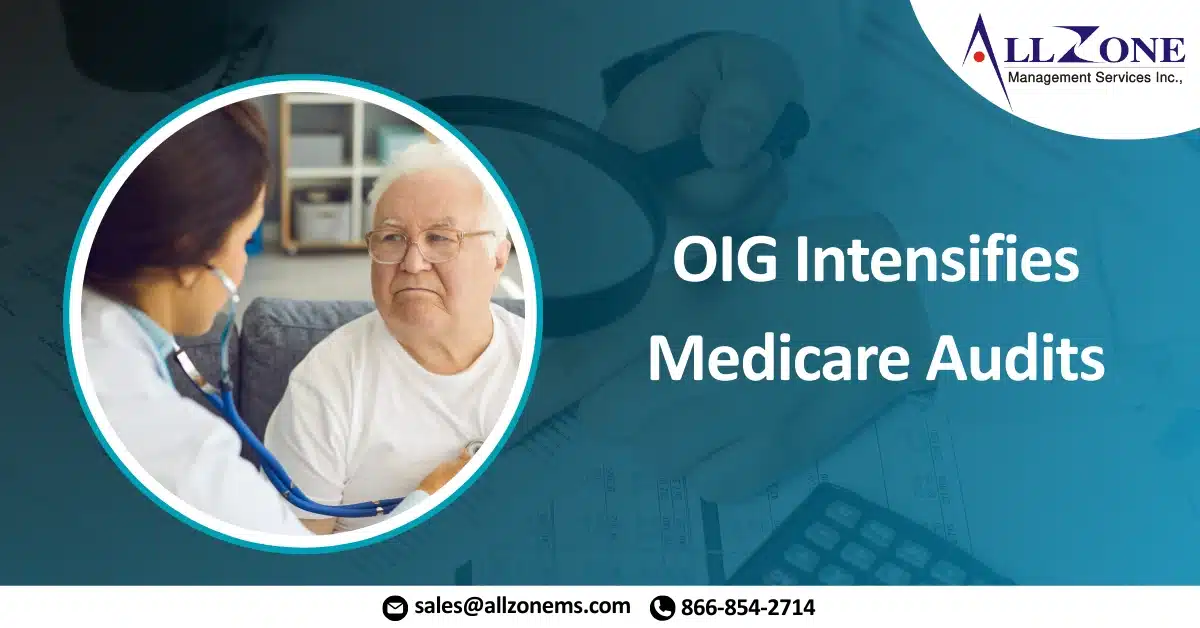The U.S. Department of Health and Human Services (HHS) Office of Inspector General (OIG) is intensifying its oversight of Medicare expenditures and billing practices through focused audits across three crucial domains, a move that can be summarized as OIG Intensifies Medicare Audits. These reviews are strategically designed to fortify Medicare’s fiscal soundness and guarantee the probity of reimbursement claims. The OIG’s proactive approach underscores the commitment to preventing financial leakage and ensuring responsible stewardship of taxpayer funds within the federal healthcare system.
Enhanced Examination of Vascular Interventions and Reimbursement Protocols:
The initial area of rigorous review, especially as the OIG Intensifies Medicare Audits, centers on Medicare disbursements for lower extremity peripheral vascular interventions. These essential therapeutic modalities, employed to manage conditions such as peripheral artery disease (PAD), are vital for enhancing blood flow to the limbs and averting severe sequelae like amputation. Nevertheless, anxieties have surfaced concerning the potential for excessive utilization and erroneous billing submissions associated with these critical procedures.
The OIG’s 2025 Work Plan specifically earmarks particular revascularization procedures – identified by their Current Procedural Terminology (CPT®) codes ranging from 37220 to 37235, alongside the Category III codes 0234T to 0238T – for meticulous inspection. In the fiscal years 2022 and 2023 alone, Medicare dispensed approximately $1.16 billion for these interventions performed in ambulatory surgical centers and physician offices.
Numerous alerts emanating from the Centers for Medicare & Medicaid Services (CMS) and whistleblower disclosures suggest a susceptibility of these specific CPT codes to billing discrepancies or even fraudulent activities. Consequently, the OIG will undertake a comprehensive analysis to ascertain the prevalence of improper payments, wasteful expenditures, or abusive billing patterns. While the granular details of this audit remain confidential, this heightened scrutiny unequivocally emphasizes the imperative for precise clinical documentation and strict adherence to established Medicare reimbursement stipulations. Healthcare providers engaging in these vascular procedures must ensure their documentation comprehensively supports the medical necessity and appropriateness of each intervention billed.
Fortifying the Integrity of Medicare Advantage Diagnosis Documentation:
The second critical area under the OIG’s lens involves Medicare Part C, also known as Medicare Advantage. This program operates on a risk-adjusted payment mechanism, where health plans receive amplified reimbursements for enrollees presenting with more complex health conditions. However, inaccuracies in diagnostic coding can precipitate substantial erroneous payments, a concern that has led to the situation where the OIG Intensifies Medicare Audits. CMS estimates that a significant proportion – approximately 9.5 percent – of payments to Medicare Advantage organizations are improper, largely attributable to unsubstantiated diagnoses. Certain medical conditions exhibit a heightened propensity for documentation deficiencies, raising valid concerns regarding potentially inflated risk scores that do not accurately reflect the true health status of beneficiaries.
To proactively address these vulnerabilities, the OIG is executing a focused audit aimed at scrutinizing whether these reported diagnoses are adequately substantiated by comprehensive medical records and comply fully with federal regulatory mandates. Ensuring the veracity and precision of coding is paramount in preventing unwarranted overpayments and safeguarding the financial stability of the program. This audit will likely delve into the supporting clinical narratives and evidence to validate the submitted diagnoses.
Verifying the Accuracy of Health Risk Assessment Diagnosis Codes in Medicare Advantage:
Finally, the OIG is conducting thorough audits of Medicare Part C health risk assessment (HRA) diagnosis codes. Medicare Advantage organizations utilize HRAs as a tool to gather comprehensive health information from enrollees, which subsequently influences the risk-adjusted payments they receive from CMS. Nevertheless, concerns have arisen regarding the inclusion of diagnoses that exclusively appear in HRAs, lacking corroborating evidence in other medical documentation. The OIG’s audit specifically targets instances where these HRA-only diagnoses led to increased payments based on hierarchical condition categories (HCCs), a system used to categorize and weight patient diagnoses for risk adjustment.
The fundamental objective of this audit is to definitively determine whether these diagnoses were appropriately documented within the broader medical record and met all pertinent federal requirements. This underscores the critical importance of employing HRAs judiciously – as legitimate instruments to enhance patient care management and identify genuine health needs, rather than as mechanisms solely intended to justify inflated reimbursement levels. Accurate and comprehensive documentation remains the cornerstone of compliant HRA utilization.
Collectively, these targeted audits underscore the persistent concerns surrounding Medicare billing accuracy and documentation rigor, particularly within the expanding landscape of Medicare Advantage. Whether the focus is on intricate vascular interventions, the precision of risk-adjusted coding, or the appropriate utilization of HRAs, the overarching message is unequivocal: meticulous accuracy and unwavering compliance with regulations are indispensable. OIG Intensifies Medicare Audits, signaling a heightened level of scrutiny. As regulatory oversight intensifies, healthcare providers and payer organizations must prioritize the maintenance of robust and defensible documentation practices to safeguard the integrity and financial viability of the Medicare program. Ongoing updates regarding the findings of these crucial audits will be closely monitored and reported as further information becomes publicly available.
Why RCM Service Companies Must Stay Informed About Medicare Audits:
Medicare audits are a critical component of healthcare compliance, and revenue cycle management (RCM) service companies must stay fully informed to protect their clients and ensure smooth financial operations. These audits, conducted by entities like RACs (Recovery Audit Contractors) and MACs (Medicare Administrative Contractors), aim to detect improper billing, coding errors, and potential fraud.
For RCM companies, understanding the audit process is essential to minimize risk and avoid costly recoupments or penalties for providers. Staying informed enables RCM professionals to implement proactive compliance strategies, such as accurate documentation, coding audits, and staff education. It also equips them to respond quickly and effectively to audit requests or appeals.
Moreover, frequent changes to Medicare guidelines make it crucial for RCM partners to stay updated. Being audit-ready not only builds trust with healthcare providers but also strengthens the RCM company’s reputation as a reliable and compliant partner.
Ultimately, knowledge of Medicare audits empowers RCM service companies to safeguard revenue, maintain compliance, and support the financial health of their clients in an increasingly complex regulatory environment.

